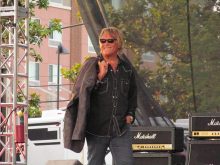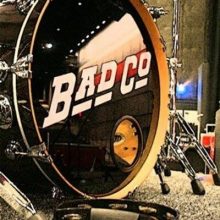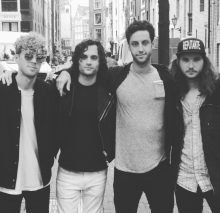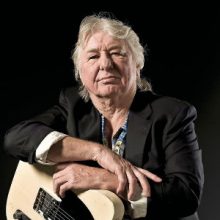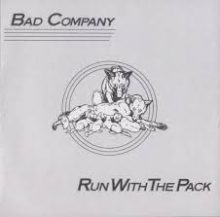Paul Rodgers has had a career that most would envy. In the 70’s, he was the lead singer of Free and Bad Company.
The 80’s brought The Firm, the 90’s was The Law and the 2000’s included Queen + Paul Rodgers. Plus, throughout, the singer has had a very successful solo career.
Now comes his latest solo effort, The Royal Sessions, recorded in Memphis with the musicians of Royal Studios which opened in 1956 and has recorded the likes of Al Green, Chuck Berry, Buddy Guy, Soloman Burke, Robert Cray and many more.
The album is a treasure trove of classic soul compositions performed by one of the great voices of the rock era. Rodgers took the sessions very seriously and carefully chose songs that represented the sound of Memphis, covering Otis Redding, O.V. Wright, Albert King, Ann Peebles, Sam and Dave and many more. Where others have tried to recreate and pay tribute to the Memphis sound in the recent past, Rodgers has the pipes and the emotional delivery to truly make it happen.
The Royal Sessions has been received extremely well by the critics and the public alike with Rodgers scoring hits on both the Classic Rock Charts and, for the first time in his career, the Billboard Adult Contemporary chart where I Can’t Stop the Rain is quickly ascending.
VVN Music had the pleasure to talk to Rodgers about the new album.
Interview
VVN Music (VVN): Congratulations on the new album.
Paul Rodgers (PR): We’re very, very pleased with the result. The reaction has been amazing. It isn’t even released yet but the interest has been completely international in Japan and Australia and Europe and America/Canada. It’s just wonderful.
We had such a blast making the album. It was a dream come true. This was the music I listened to when I was 13, 14, 15 and it really powerfully influenced me. When I hit the road and decided I was going to try to do something in the music business, this music has stayed with me through the years with Free, Bad Company, the Firm and solo work. In everything I’ve done, it’s been the inspiration for it all. So, when I walked into that studio and met the guys and we started playing, it was really like coming home.
VVN: Did you hit it right off with all the musicians? I know that there were at least three there that were from the original 60’s studio band.
PR: They hadn’t been told who was coming in. They’d only been told that I was a singer and songwriter so they had no preconceived notions at all, so they were like “I wonder, who is this guy?” The first song we kicked off with was That’s How Strong My Love Is and, as soon as we started, we knew we were all on the same page and speaking the same language. From the get go, we really hit it off wonderfully.
VVN: When you recorded this album, everything was live in the studio. You were in there with the musicians.
PR: That’s correct. I did all the vocals, bar one, in the studio with the band. The one exception was Walk On By. I took that one away because I wanted to think about the new arrangement that the Reverend Charles had given it. I wanted it to be right. I didn’t want to just throw something on it, so I did that one in Perry’s [c, producer] studio in New York. It’s called Pie Studios. We had a wonderful time doing that, too, because everything was analog in the Royal Studios and it was also analog up where Perry’s place is so the sound was just that beautiful, deep, lovely spaced sound. Anything analog is such a beautiful sound.
VVN: When I first saw the track listing and noticed Walk on By, I was thinking to myself “Well, that seems a little bit out of place” completely forgetting about the Isaac Hayes take on it.
PR: It’s interesting. A lot of people have said that to me. The first version that pops to mind is the Dionne Warwick version. It’s strange to me because I love Dionne Warwick’s version and I love her as a singer but the Isaac Hayes version hit me like a ton of bricks. I thought it had hit everybody like that and had almost superseded the original version but apparently not. Anyway, that was our blueprint, the Isaac Hayes version. That’s where we took it from.
VVN: Have you ever recorded with all the musicians in the studio at the same time before or was this something new?
PR: Well, that’s how I learned. When I first started recording, that’s how I understood you do it. I though that was how it was done because I had listened so much to Stax and blues where everything was pretty much live in the studio. That’s what I assumed they went for, the take that had the spark to it. That’s been the whole science of recording for me. How do you get the one with the spark and, over the years, I’ve discovered, for me anyway, it’s not the hundredth take. It’s often the first take but you, first of all, had to have done all the work outside of the studio. You’ve rehearsed and then you walk in and, if you haven’t got it by the first two or three takes, it’s time to move on and come back to it.
Interestingly, with the guys, they were so first class and such masters of their genre, everything was so first class. On I’ve Been Loving You Too Long, I obviously knew the song…I’d sung it in the car…but I never had stood in front of a band and actually performed the song. It was definitely a first take for me and we just launched into it out into the deep just to try it. At the end, we all sort of went “Phew!” We’d just been somewhere. We had just been on a journey so we decided to listen to it and it was decided there was no point in trying to do a second take. There was no reason for it. It was all there for us so that was a one take situation.
VVN: How much did the musicians do their own arranging and how much did they rely on old charts. With I’ve Been Loving You Too Long, it very much felt like the original arrangement where Walk On By had the feel of the original Isaac Hayes track but the arrangement still felt new.
PR: It was. There is a section in the middle where it went into its own thing. That’s the part I had to think about because I wanted it to sound natural vocally. The was so much ad libbing going on, too. There were a lot of climactic situations where Charles would somehow signal the band and suddenly we’d really be hitting it and all of a sudden change right down to a whisper. There’s a couple of songs on there where it was like “OK, now it’s time to testify” and we’d go into this whole world of ad libs and it was beautiful.
VVN: I’m curious. I know that the music influenced you greatly when you were in your early and mid-teens and I know, at that time, British media was closed and almost all BBC. Where did you actually get the chance to hear the soul music that influenced you.
PR: It was pretty closed with the media and it was hard to break into the BBC and there was not that much opportunity, but there were some people. As far as listening to the music, I would hear it in clubs in my hometown of Middlesbrough. There was a particular club called the Purple Onion and I used to have a band and we’d play shows and then go to the club. We’d listen to all this soul music and we’d be around 14, 15, 16. This was the music being played. A lot of Stax and, especially, Otis Redding. That’s how the influence came to me. Booker T. and the MG’s had been through. A lot of blues, too with John Lee Hooker, B.B. King and Albert King, so I’d been soaking a lot of that up before I came down to London from my hometown and formed Free.
The problem then was getting through into the media. John Peel gave us a chance, he was a DJ. He would go to the BBC and he would rerecord your songs in their studio and they would air them. The first song that I heard that was my own song was Walk in My Shadow. Then the other program was Bob Harris’ The Old Grey Whistle Test and he gave us a break which was really, really nice, but to get on something like Top of the Pops, you had to have a big selling record which we finally managed to do with All Right Now.
So, you could break through, but it wasn’t easy.
VVN: As a teen, when you were hearing the music of Otis Redding, Albert King and O.V. Wright, were you hearing cover version instead of originals because you were hearing them in clubs by live bands?
PR: Actually, I have to say, there were live bands playing but, in between the live bands, they played actual records. They played the Temptations, Otis Redding, all the soul stuff. It was more soul music in the clubs because you could dance to it. Blues, we bought the old 45’s.
VVN: How hard was it to take all of this influence and cut down a list of songs that you wanted to record?
PR: The approach was to focus on Stax because so many great records came out on the label. Everything was from Stax except, I think, Ann Peeble’s I Can’t Stand the Rain. The reason we recorded that song was because I saw the master in the studio and I asked the Reverend Charles about it. He said “Oh, yeah. She recorded that song right here in this studio and we were the band.” I said “Oh my gosh, can we try that one?” and he said “Absolutely.” So, we did our own version and it made it onto the album.
We recorded quite a few songs and paired it down to what were the strongest ten tracks.
VVN: Was there a lot left over?
PR: I don’t think there is a ton of material, but there could be. We probably did an average of about two tracks per day over ten days so there’s some material. The three tracks you mentioned are being put out as bonus material, Walk in My Shadow was one, I think Shake was another and there is one further one.
VVN: Wonderful World was the other one.
PR: Oh, yeah, yeah. There’s nothing wrong with those. I didn’t leave them off because there was any big problem with them. It’s just that these ten tracks, for me, they make a nice list listening wise. We wanted to release it on vinyl, too, so you would have five, ending with That’s How Strong My Love Is, and side two would open with Walk On By. That was part of the process of putting the list together, how it would read on vinyl. Time came into it, too.
VVN: I know you’ve also said it was in your mind that you might go back and do a second Royal Sessions.
PR: The way it went down and the reaction we are getting…definitely would be the short answer. I mean, there is so much great material and we have the great band there and people are definitely interested. I love to bring this music back to life. I love to present it to a brand new public. Even the older school who are revisiting it, it’s such a joy for us to do and I hope it’s a joy for them to listen to.
Perry is very keen on analog and he’s reintroduced me back to vinyl. I realize that I missed it terribly. I bought a deck again and I’m collecting vinyl. You can find it in old junk shops and various places. It’s really a nice hobby to collect old vinyl. I was listening this morning to Junior Wells, Somebody Done Hoodooed the Hoodoo man. That is an awesome album, it’s so underrated. To listen to something like that on vinyl is such a pleasure.
VVN: Did you have any trepidation going into the studio and rerecording some of these classics?
PR: I think, if I had trepidation, it was because had to be authentic. It had to sound right somehow. I was entering hallowed ground. I didn’t want to mess up my own history, as it were. This is stuff I approached reverentially in a way. It was fifty years ago I was listening to these songs in the clubs and in my room on Saltersgill Avenue in Middlebrough as a kid and thinking “Wow! Where does this come from? Where did this feeling come from? How did they record this?” Just finding out about the history of Stax, how they converted this cinema and how they made this music. The kids would hang around out front so they eventually put in a record store to sell their own products beside it and it became the center of the whole area. How the music was just organic and its growth while still keeping the feeling. It wasn’t slick. They captured the spirit of the times. This music shines for me.
VVN: So, if you were to go back into the studio for another Royal Sessions, any idea what you would want to record?
PR: Well, I could tell you but I don’t want to jinx it at this point. There are loads of songs that I used to listen to and I think “Oh, there’s that one, too”, “Oh, and that one.” It all starts coming back to you. The scope is limitless, really. There’s such a wealth of material that has built up over those years.
VVN: One of the things that I didn’t know about this project until I saw the Electronic Press Kit was that the proceeds for this record are going to music education in Memphis.
PR: Perry Margouleff, my producer and my core songwriter, too, we financed the whole project. It was a labor of love. He went down there and said “There’s this great studio and it’s still as it was in the 50’s and all the musicians are there. Let’s go down and spend three days and see what we come up with. So we went down and tried the three days and it was so great so we decided to go back and make a full album.
So, everyday during the sessions, we would drive from our rather nice hotel down into this economically challenged area to this beautiful old building that is still standing there against the winds of time. Willie Mitchell would run the place. He handed it over to his son Boo Mitchell who is keeping the flag flying and keeping the spirit going. We would be driving and we’d say “This music has given us so much and here we are, in a way, we’re kind of taking from it again.” He said “Well, I’ll tell you what. If it makes money in any way, lets give it back to Memphis somehow.” It left us conscience free, really, so we could enjoy playing the music.
Looking at a way to do that, it turns out that Stax, which is just down the road, runs a school for teaching the kids music. It kept me off the streets, music did, so we said “Let’s do that.” If it makes any profit, that’s what we’ll do.
VVN: Music education in the U.S. is always under the knife in these economic times and anything that can help is really a wonderful thing.
PR: I saw a documentary that said, when music is included in the curriculum, everything improved. The English, the math and, when it was taken away, those things suffered. There’s something about music that opens people’s minds and brings them together. I’ve definitely found this doing shows. Music is really a gift from the universe, whatever you call it. We will certainly keep it alive, that’s for sure.
VVN: I know you no longer live in England but was wondering if the music education situation was similar there.
PR: I’m sure it is. You know, I’ve never really gotten to the point of turning around and looking at being responsible in a way. I’ve lived my life as a rock singer thinking about “me, me, me” all the time and, all of a sudden, it’s occurred to me that “Wow, I’ve been given so much from music” so that’s why we’re giving back.
VVN: What else is on your plate in the future. Will you be touring behind the album?
PR: Well, the U.S. tour is from April 29 through June 7. I only play about 25 or 30 shows per year. I limit the amount of time I play so I can take time to live but I will definitely be supporting this album in every way I can. We’re still kind of taken back by the reaction which has been so positive so we are talking about ways to get it out there. We have talked about doing a show in a club in Memphis and filming it.
VVN: Just yesterday or the day before, Brian May said that Queen had one more tour in them. From what you just said, it sounds like the answer would be no but I have to ask, is there any chance for your involvement in that?
PR: I think they’ve already got somebody. You see, I joined forces with Queen and we toured the world twice. We made live DVDs and CDs and we finished up with a studio album of original material. I felt, at that point after four years, I was ready to move on, to go back to my own music. We had a ball. It was fantastic. We played in some amazing places. In Latvia, the president of the country, who is a drummer, got up and played All Right Now with us. I said to Spike “Wait until we tell the folks back home.” I was happy to help them and now they are off and running. I’m happy to see them do their thing.
Read more at VVN Music
——————————————————————————————————————————————
Stay updated with your free Noise11.com daily music news email alert. Subscribe to Noise11 Music News here
Follow Noise11.com on Facebook and Twitter


